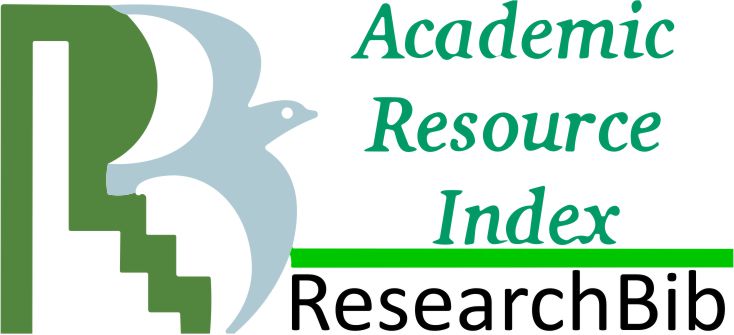DOI
10.21002/jaki.2024.09
Abstract
This study aims to provide empirical evidence on the impact of the informal relationship between the CFO and CEO on tax aggressiveness, and the moderating role of business strategy in this relationship. The data used in this study is sourced from companies listed on the Indonesia Stock Exchange (IDX) from 2020 to 2022. The informal relationship between the CFO and CEO is measured through social ties and CFO co-option, while tax aggressiveness is measured by book-tax differences. This study also explores how business strategies, categorized as prospector or defender, moderate this relationship. The results indicate that CFO-CEO social ties significantly reduced tax aggressiveness. However, the findings did not support the moderating role of either prospector or defender business strategies in strengthening or weakening this relationship. The implications of these results are relevant for managerial decision-making and academic literature, and suggest directions for future research that consider broader internal and external company dynamics.
Bahasa Abstract
Penelitian ini bertujuan untuk memberikan bukti empiris mengenai pengaruh hubungan informal CFO-CEO terhadap agresivitas pajak dan peran strategi bisnis sebagai moderasi dalam hubungan tersebut. Data yang digunakan berasal dari perusahaan yang terdaftar di Bursa Efek Indonesia (BEI) selama tahun 2020 hingga 2022. Hubungan informal CFO-CEO diukur dengan social ties CFO-CEO dan co-option CFO, sedangkan agresivitas pajak diukur dengan book tax differences. Penelitian ini juga mengeksplorasi bagaimana strategi bisnis, dikategorikan menjadi prospector dan defender, memoderasi hubungan tersebut. Hasil menunjukkan bahwa social ties CFO-CEO secara signifikan menurunkan agresivitas pajak. Namun, hasil penelitian tidak mendukung peran strategi bisnis prospector atau defender dalam memperkuat atau melemahkan hubungan tersebut. Implikasi dari hasil ini relevan bagi pengambilan keputusan manajerial dan literatur akademis, serta menyarankan arah untuk penelitian masa depan yang memperhitungkan dinamika internal dan eksternal perusahaan yang lebih luas.
References
Abernethy, M. A., Y. F. Kuang, and B. Qin. 2019. The Relation Between Strategy, CEO Selection, and Firm Performance. Contemporary Accounting Research, 36 (3), 1575–1606. https://doi.org/10.1111/1911-3846.12463
Arifin, I. S., and A. Rahmiati. 2020. The Relationship Between Corporate Social Responsibility and Tax Aggressiveness: An Indonesian Study. International Journal of Innovation, Creativity and Change, 13 (4), 645–663.
Asdemir, O., G. D. Fernando, and A. Tripathy. 2013. Market Perception of Firm Strategy. Managerial Finance, 39 (2), 90–115. https://doi.org/10.1108/03074351311293972
Baghdadi, G. A., L. H. G. Nguyen, and E. J. Podolski. 2020. Board co-option and default risk. Journal of Corporate Finance, 64, 101703. https://doi.org/10.1016/j.jcorpfin.2020.101703
Barker III, V. L., and G. C. Mueller. 2002. CEO Characteristics and Firm R&D Spending. Management Science, 48 (6), 782–801. https://doi.org/10.1287/mnsc.48.6.782.187
Bentley, K. A., T. C. Omer, and N. Y. Sharp. 2013. Business Strategy, Financial Reporting Irregularities, and Audit Effort. Contemporary Accounting Research, 30 (2), 780–817. https://doi.org/10.1111/j.1911-3846.2012.01174.x
Campa, D., G. Ginesti, A. Allini, and R. Casciello. 2022. Chief Financial Officer Co-Option And Tax Avoidance in European Listed Firms. Journal of Accounting and Public Policy, 41 (1). https://doi.org/10.1016/j.jaccpubpol.2021.106935
Campello, M., J. R. Graham, and C. R. Harvey. 2010. The Real Effects of Financial Constraints: Evidence from A Financial Crisis. Journal of Financial Economics, 97 (3), 470–487. https://doi.org/10.1016/j.jfineco.2010.02.009
Chen, M. C., C. W. Chang, and M. C. Lee. 2020. The Effect of Chief Financial Officers’ Accounting Expertise on Corporate Tax Avoidance: The Role of Compensation Design. Review of Quantitative Finance and Accounting, 54 (1), 273–296. https://doi.org/10.1007/s11156-019-00789-5
Chen, S., X. Chen, Q. Cheng, and T. Shevlin. 2010. Are Family Firms More Tax Aggressive than Non-Family Firms? Journal of Financial Economics, 95 (1), 41–61. https://doi.org/10.1016/j.jfineco.2009.02.003
Coles, J. L., N. D. Daniel, and L. Naveen. 2014. Co-Opted Boards. Review of Financial Studies, 27 (6), 1751–1796. https://doi.org/10.1093/rfs/hhu011
Comprix, J., R. Graham, and J. A. Moore. 2011. Empirical Evidence on the Impact of Book-Tax Differences on Divergence of Opinion Among Investors. Journal of the American Taxation Association, 33 (1), 51–78.
Creswell, J. W. 2014. Research Design: Qualitative, Quantitative, and Mixed Methods Approaches 4th . Thousand Oaks, CA: SAGE Publications, Inc.
Dalwai, T., and M. Salehi. 2021. Business Strategy, Intellectual Capital, Firm Performance, and Bankruptcy Risk: Evidence from Oman’s Non-Financial Sector Companies. Asian Review of Accounting, 29 (3), 474–504. https://doi.org/10.1108/ARA-01-2021-0008
Desai, M. A. and D. Dharmapala. 2006. Corporate tax avoidance and high-powered incentives. Journal of financial Economics, 79 (1), 145–179.
Dikolli, S. S., J. C. Heater, W. J. Mayew, and M. Sethuraman. 2021. Chief Financial Officer Co-Option and Chief Executive Officer Compensation. Management Science, 67 (3), 1939–1955. https://doi.org/10.1287/mnsc.2019.3519
Dyreng, S. D., M. Hanlon, and E. L. Maydew. 2008. Long-Run Corporate Tax Avoidance. The Accounting Review, 83 (1).
Dyreng, S. D., M. Hanlon, and E. L. Maydew. 2010. The Effects of Executives on Corporate Tax Avoidance. The Accounting Review, 85 (4), 1163–1189. https://doi.org/10.2308/accr.2010.85.4.1163
Francis, B., I. Hasan, Q. Wu, and M. Yan. 2014. Are Female CFOs Less Tax Aggressive? Evidence from Tax Aggressiveness. Bank of Finland Research Discussion Paper No. 16/2014. Forthcoming in Journal of American Taxation Association. Available at SSRN: https://ssrn.com/abstract=2428541
Frischanita, Y., and Y. Bernawati. 2020. The Effect of CFO Demographics on Fraudulent Financial Reporting. Jurnal Akuntansi, 24 (1), 21–36.
Gao, J., A. Masli, I. Suh, and J. Xu. 2019. The Influence of a Family Business Climate and CEO–CFO Relationship Quality on Misreporting Conduct. Journal of Business Ethics, 171, 1–24.
Graham, J. R., and C. R. Harvey. 2001. The Theory and Practice of Corporate Finance: Evidence from the Field. Journal of Financial Economics, 60 (2-3), 187–243. https://doi.org/10.1016/s0304-405x(01)00044-7
Gujarati, D. N. and D. C. Porter. 2009. Basic Econometrics 5th. New York: McGraw-Hill Irwin.
Gupta, S., and K. Newberry. 1997. Determinants of the Variability in Corporate Effective Tax Rates: Evidence from Longitudinal Data. Journal of Accounting and Public Policy, 16, 1–34.
Hanlon, M., and S. Heitzman. 2010. A Review of Tax Research. Journal of Accounting and Economics, 50 (2–3), 127–178. https://doi.org/10.1016/j.jacceco.2010.09.002
Hareli, S., and B.Weiner. 2002. Social Emotions and Personality Inferences: A Scaffold for A New Direction in the Study of Achievement Motivation. Educational Psychologist, 37, 183–193.
Higgins, D. M., T. C. Omer, and J. D. Phillips. 2011. Does a Firm’s Business Strategy Influence its Level of Tax Avoidance? SSRN.com. Working Paper.
Higgins, D. M., T. C. Omer, and J. D. Phillips 2012. Tax Avoidance Versus Aggressiveness: The Influence of a Firm’s Business Strategy. SSRN.com. Working Paper.
Higgins, D. M., T. C. Omer, and J. D. Phillips 2014. The Influence of a Firm's Business Strategy on its Tax Aggressiveness. Contemporary Accounting Research, 32 (2), 674–702.
Hoitash, U. 2011. Should Independent Board Members with Social Ties to Management Disqualify Themselves from Serving on the Board? Journal of Business Ethics, 99 (3), 399–423.
Huseynov, F., and B. K. Klamm. 2012. Tax Avoidance, Tax Management, and Corporate Social Responsibility. Journal of Corporate Finance, 8, 804–827.
Jensen, M. C., and K. J. Murphy. 1990. Performance Pay and Top Management Incentives. Journal of Political Economy, 98, 225–263. http://dx.doi.org/10.1086/261677
Johnson, K. S. 2015. CFOs Wade into the Trenches of Operations. Wall Street Journal. Downloaded on 15 March 2022, https://www.wsj.com/articles/many-successful-cfos-play-role-in-operations-1420502312
Kemenkeu. 2021. Reformasi Perpajakan untuk Penciptaan Keadilan, Peningkatan Kepatuhan, dan Penguatan Fiskal. October, 11. Downloaded on 5 November 2021, https://fiskal.kemenkeu.go.id/publikasi/siaran-pers-detil/326
Kemenkeu. 2023. Menkeu: Kinerja Penerimaan Negara Luar Biasa Dua Tahun Berturut-turut. January, 4. Downloaded 15 January 2023, https://www.kemenkeu.go.id/informasi-publik/publikasi/berita-utama/Kinerja-Penerimaan-Negara-Luar-Biasa
Kuang, Y. F., X. K. Liu, S. Paruchuri, and B. Qin. 2022. CFO Social Ties to Non-CEO Senior Managers and Financial Restatements. Accounting and Business Research, 52 (2), 115–149. https://doi.org/10.1080/00014788.2020.1793719
Lanis, R., and G. Richardson. 2012. Corporate Social Responsibility and Tax Aggressiveness: An Empirical Analysis. Journal of Accounting and Public Policy, 31 (1), 86–108. https://doi.org/10.1016/j.jaccpubpol.2011.10.006
Lim, Y. 2011. Tax avoidance, cost of debt and shareholder activism: Evidence from Korea. Journal of Banking & Finance, 35 (2), 456–470.
Maisaroh, S., and D. Setiawan. 2021. Kepemilikan Saham Asing, Dewan Komisaris Asing dan Direksi Asing Terhadap Penghindaran Pajak di Indonesia. Jurnal Akuntansi dan Bisnis, 21 (1), 29–44. https://doi.org/10.20961/jab.v21i1.636
Malik, D., and E. Firdaus. 2020. Sidang Pledoi, Terdakwa Jiwasraya Sebut Aksinya Diketahui Banyak Pihak. VIVA.co.id. September, 30. Downloaded on 10 October 2020, https://www.viva.co.id/berita/nasional/1307204-sidang-pledoi-terdakwa-jiwasraya-sebut-aksinya-diketahui-banyak-pihak
Malmendier, U., and G. Tate. 2005. CEO Overconfidence And Corporate Investment. Journal of Finance, 60 (6), 2661–2700. https://doi.org/10.1111/j.1540-6261.2005.00813.x
Miles, R. E., C. C. Snow, A. D. Meyer, and H. J. Coleman Jr. 1978. Organizational strategy, structure, and process. Academy of management review, 3 (3), 546–562.
Navissi, F. et al. 2017. Business Strategy, Over- (Under-) Investment, and Managerial Compensation. Journal of Management Accounting Research, 29 (2), 63–86. https://doi.org/10.2308/jmar-51537
Neuman, W. L. 2003. Social Research Methods: Qualitative and Quantitative Approaches 5th. Boston, MA: Allyn and Bacon.
Plesko, G. A. 2004. Corporate tax avoidance and the properties of corporate earnings. National Tax Journal, 57 (3), 729–737.
Porter, M. E. 1980. Competitive Strategy. New York: Free Press.
Prima, B., and H. K. Dewi. 2019. Tax Justice Laporkan Bentoel Lakukan Penghindaran Pajak, Indonesia Rugi US$ 14 Juta. May, 8. Downloaded on 12 June 2020, https://nasional.kontan.co.id/news/tax-justice-laporkan-bentoel-lakukan-penghindaran-pajak-indonesia-rugi-rp-14-juta
Putra, T. S. A. 2022. Pajak untuk Pembangunan Nasional. Kementerian Keuangan Republik Indonesia. April, 20. Downloaded on 25 May 2022, https://www.djkn.kemenkeu.go.id/kanwil-kalbar/baca-artikel/14978/Pajak-untuk-Pembangunan-Nasional.html
Robbins, S. P. 1996. Perilaku Organisasi Edisi ke-7 (Jilid II). Jakarta: Prehallindo.
Rohatgi, R. 2005. Basic International Taxation 2nd. London: Richmond Law & Tax.
Rudiawarni, F. A., B. Tjahjadi, D. Agustia, and N. Soewarno. 2022. Business Strategy and Industrial Competition: The Case of Manufacturing Companies. International Journal of Business Environment, 13 (1), 35–59.
Simeon, R. 2001. Top Team Characteristics and the Business Strategies of Japanese Firms. Corporate Governance, 1 (2), 4–12. https://doi.org/10.1108/14720700110394344
Sun, J., P. Kent, B. Qi, and J. Wang. 2017. Chief Financial Officer Demographic Characteristics and Fraudulent Financial Reporting in China. Accounting and Finance. https://doi.org/10.1111/acfi.12286
Tang, T. and M. Firth. 2011. Can book–tax differences capture earnings management and tax management? Empirical evidence from China. The International Journal of Accounting, 46 (2), 175–204.
Zimmerman, J. L. 1983. Taxes and Firm Size. Journal of Accounting and Economics, 5, 119–149. https://doi.org/10.1016/0165-4101(83)90001-6
Recommended Citation
Khuluqy, Hilmi; Maisaroh, Siti; Rahmiati, Alfa; and Tjaraka, Heru
(2024)
"CFO-CEO INFORMAL TIES, BUSINESS STRATEGY, AND TAX AGGRESSIVENESS,"
Jurnal Akuntansi dan Keuangan Indonesia: Vol. 21:
No.
2, Article 3.
DOI: 10.21002/jaki.2024.09
Available at:
https://scholarhub.ui.ac.id/jaki/vol21/iss2/3












